Accounting Resources
Helpful links, forms, record retention guidelines and more.
Links
California Franchise Tax Board
California Employment Development Department
California State Board of Equalization
Social Security Administration
United States Department of Labor
California Secretary of State – Statement of Information
Tax Forms
W-2 – Wage and Tax Statement
W-4 – Employee’s Withholding Allowance Certificate
W-9 – Request for Taxpayer Identification Number and Certification
I-9 – Employment Eligibility Verification
Healthcare Reform Documents
California Marketplace Notice to Employee, Employer Offers Health Coverage
California Marketplace Notice to Employee, Employer Does Not Offer Health Coverage
Generic (Non-California) Marketplace Notice to Employee, Employer Offers Health Coverage
Generic (Non-California) Marketplace Notice to Employee, Employer Does Not Offer Health Coverage

Simplify Your Payroll
Simplify your payroll with our online payroll service that enables you to manage your business from anywhere. This service includes comprehensive tax management, free direct deposit, check printing, payroll reports, employee benefit reports, HR resources, and more!
Record Retention Guidelines
Record Retention for Individuals
Good record keeping can reduce your taxes and make your financial life easier. How long to keep records is a combination of judgment and state and federal statutes of limitations. Since federal tax returns can generally be audited for up to three years after filing and up to six years if the IRS suspects underreported income, it’s wise to keep tax records at least 7 years after a return is filed. Requirements for records kept electronically are the same as for paper records. Generally, you can follow these recommended retention periods for the following documents.
-
Tax returns (uncomplicated) - 7 years
Tax returns (all others) - Permanent
W-2s - 7 years
1099s - 7 years
Bank statements - 7 years
Cancelled or substitute checks supporting tax deductions - 7 years
Charitable contribution records - 7 years
Credit card statements - 7 years
Dividend reinvestment records - Ownership period + 7 years
Divorce documents - Permanent
Estate planning documents - Permanent
Home purchase & improvement documents - Ownership period + 7 years
Home repair receipts - Warranty period for item
Insurance policies - Life of policy + 3 years (Check with your agent. Liability for prior years can vary.)
Investment purchase & sales documents - Ownership period + 7 years
IRA annual reports - Permanent
IRA nondeductible contributions Form 8606 - Permanent
Loans - Term of loan + 7 years
Mutual fund annual statements - Ownership period + 7 years
Receipts, diaries, logs pertaining to tax return - 7 years
Retirement plan annual reports - Permanent
Year-end brokerage statements - Ownership period + 7 years
Record Retention for Businesses
In business, good record keeping is essential not only for tax reporting purposes but also for the success of the company. The guidelines below give general retention periods for the most common business records. Don’t hesitate to contact us if you’d like more information or assistance with your record retention program.
-
Accounts payable - 7 years
Accounts receivable - 7 years
Audit and financial statements - Permanent
Chart of accounts - Permanent
Depreciation schedules - Permanent
Expense records - 7 years
Financial statements (annual) - Permanent
Fixed asset purchases - Permanent
Garnishment records - Permanent
General ledger - Permanent
Inventory records - 7 years (Permanent for LIFO system)
Loan payment schedules - 7 years
Payroll tax returns - 7 years
Purchase orders - 7 years
Sales records - 7 years
Tax returns - Permanent
-
Bank reconciliations - 2 years
Bank statements - 7 years
Cancelled or substitute checks - 7 years (Permanent for real estate purchases)
Electronic payment records - 7 years
-
Annual reports to Secretary of State/Attorney General - Permanent
Articles of Incorporation - Permanent
Board meeting and board committee minutes - Permanent
Board policies and resolutions - Permanent
Business licenses - Permanent
Bylaws - Permanent
Contracts major - Permanent
Contracts minor - Life + 4 years
Insurance policies - Life + 3 years (Check with your agent. Liability for prior years can vary)
IRS Application for tax exempt status - Permanent
IRS determination letter - Permanent
Leases/mortgages - Permanent
Patents/trademarks - Permanent
Shareholder records - Permanent
State sales tax exemption letter - Permanent
Stock registers - Permanent
Stock transactions - Permanent
-
Accident reports and Worker’s Compensation records - 5 years
Benefit plans - Permanent
Employee files (ex-employees) - 7 years (Or statute of limitations for employee lawsuits)
Employment applications - 3 years
Employment taxes - 7 years
I-9 forms - Employment period + 3 years
Payroll records - 7 years
Pension/profit sharing plans - Permanent
Time cards - 3 years
-
Appraisals - Permanent
Construction records - Permanent
Leasehold improvements - Permanent
Lease payment records - Life + 4 years
Real estate purchases - Permanent
